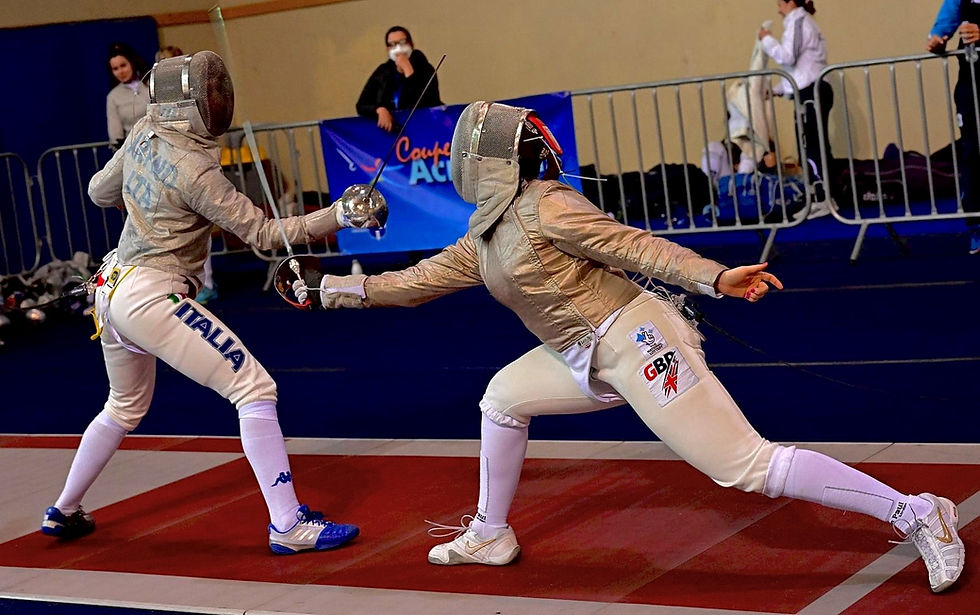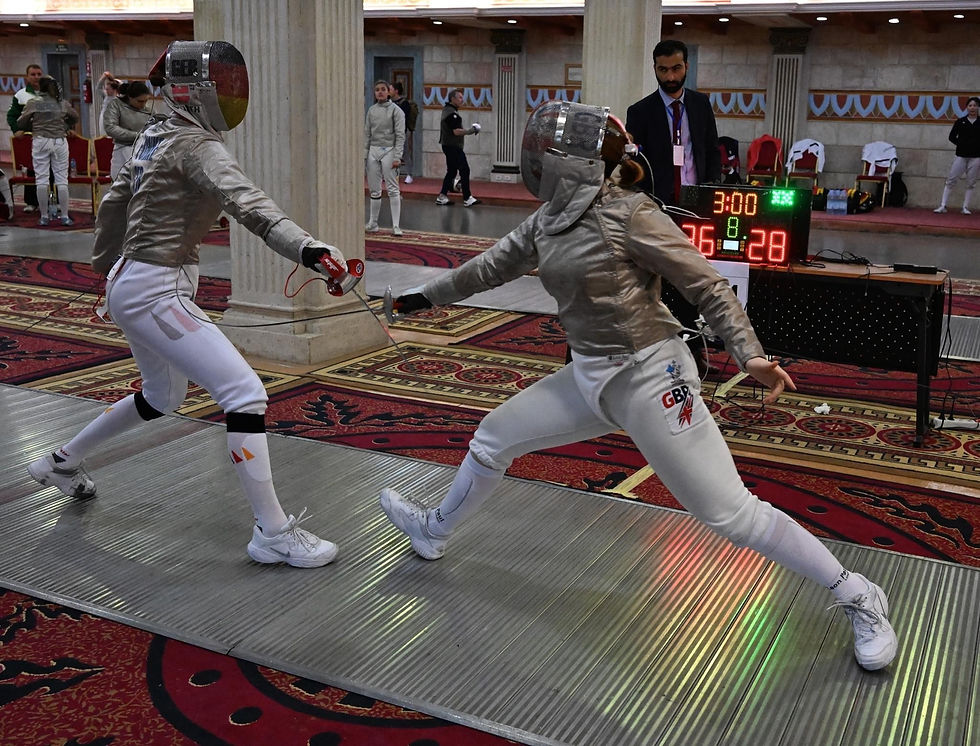Fencing for Trauma
- Rx Kerr
- Jul 27, 2022
- 3 min read

The role that fencing can play in mental health is to be showcased at this year’s Perth and Kinross Mental Health and Wellbeing Festival.
The free festival, which will take place in person at Perth Concert Hall on Saturday 6 and Sunday 7 August 2022, follows its online debut last year. Working alongside various partners, local charity Trauma Healing Together is creating a packed programme of talks, activities and workshops aimed at removing the stigma of mental health and encouraging wellbeing.
As part of the weekend event, people struggling with mental health are invited to try out a fencing taster session at Riverview Business Park, Friarton Road, Perth from 10am until midday on Saturday, 6 August 2022.

The sessions will be hosted by Project Forte, a Changing Lives programme developed in France and delivered for the first time in the UK by a partnership involving Scottish Fencing, local councils and Rape and Sexual Abuse Centres in Scotland. The programme is aimed at community and hard-to-reach groups but, in particular, is proven to have a strong therapeutic benefit for survivors of violence and trauma.
Project Forte went on to become one of 15 projects supported by the Scottish Government’s Women and Girls Fund, allowing them to run the programme in various local authority areas, including Perth and Kinross.
Roxanne Kerr, founder of Trauma Healing Together and organiser of the festival said, “Working with nine different partners who support people locally, we have created a programme which highlights the range of ‘support’ that’s out there. We’re all unique and support looks different for everyone – it’s about finding what works for you. We are delighted to be working with Project Forte, who bring a whole new dimension to the table, showcasing a sport that will be new to many but can make a huge impact on people’s lives.”
Kate Daykin (25), National Programme Director added, “Through fencing, we inspire and motivate survivors to reconnect their physical and mental beings and to learn and develop skills and attributes such as self-control, self-confidence and self-belief as they rebuild their lives. As well as trauma, fencing can make a huge difference to anyone with mental health challenges, allowing them to develop the social skills, self-confidence and employability skills they need to progress in life.”

So why fencing?
“The thing with fencing is that few people are good at it when they start! It’s a very niche sport but one which has the power to help people reconnect and rebuild, while building their self-confidence. If you’re struggling, it’s important to get out there, however hard that is, to try new things and challenge yourself. The focus required is also a great way to switch off and develop mindfulness, where you channel your energy and drive into learning a skill and participating in a sport. There’s a pre-conception that fencing is a middle-class, expensive sport, but it’s actually really accessible and open to everyone, even wheelchair-users.”
Kate, who has been fencing for over 10 years and represented the sport in both Scotland and GB believes fencing has had a significant impact on her own mental health.
She explained, “Fencing is a mindful activity as much as it is a physical one. Any issues, thoughts or feelings can’t interrupt you when you’re training otherwise you’ll lose focus. The ‘letting go’ to focus on your opponent, make tactical decisions and be present in the moment are all key parts of the sport. If I wasn’t involved in fencing, I don’t think I would have come across mindfulness or been as conscious about my own mental state. I have struggled with anxiety and panic attacks throughout school and university but, through fencing, I have gained a ‘mental health toolbox’ that I can dip into when I need it, like how to deal with setbacks, being present, calming the mind, problem-solving and self-reflection, all elements that can be used in day to day life.” To book the taster session, please visit https://www.traumahealingtogether.org/







Comments